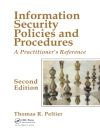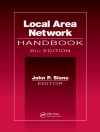This Springer Brief examines anti-jamming transmissions in cognitive radio networks (CRNs), including several recent related research topics within this field. The author introduces the transmissions based on uncoordinated spread spectrum to address smart jammers in CRNs.
The author applies game theory to investigate the interactions between secondary users and jammers while providing game theoretic solutions to suppress jamming incentives in CRNs. Later chapters evaluate the Nash equilibrium and Stackelberg equilibrium of the jamming games under various network scenarios.
Professionals and researchers working in networks, wireless communications and information technology will findAnti-Jamming Transmissions in Cognitive Radio Networks valuable material as a reference. Advanced-level students studying electrical engineering and computer science will also find this brief a useful tool.
Содержание
Introduction.- Spread Spectrum-based Anti-jamming Techniques.- Anti-jamming Techniques based on Uncoordinated Spread Spectrum.- Game Theoretic Study on Jamming in CRNs.- Game Theoretic Stimulation Mechanisms.- Active Anti-jamming Solutions in CRNs.- Conclusion and Future Work.












